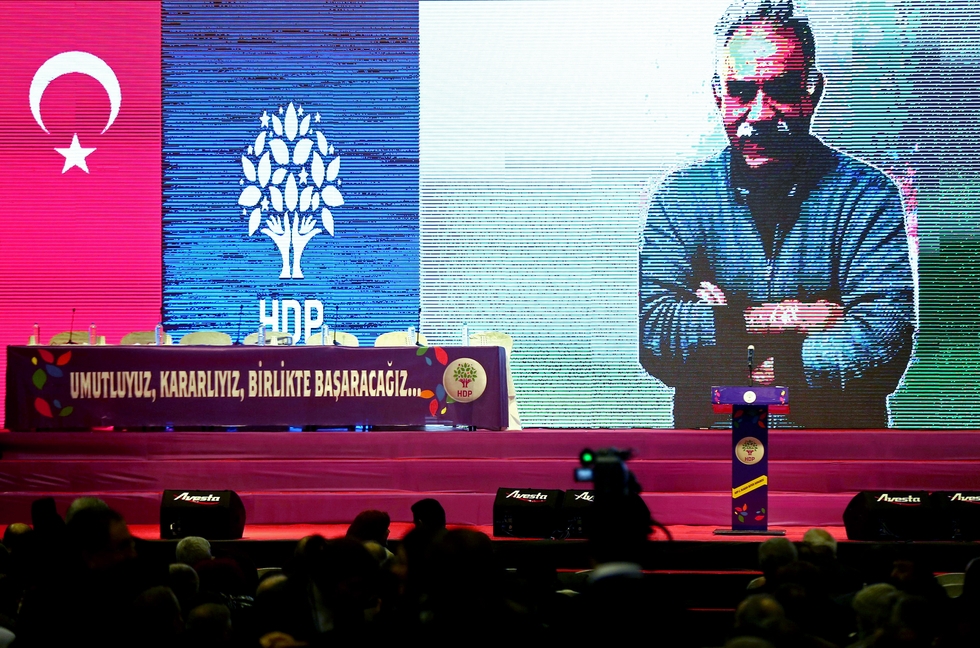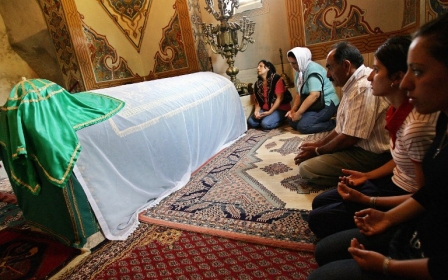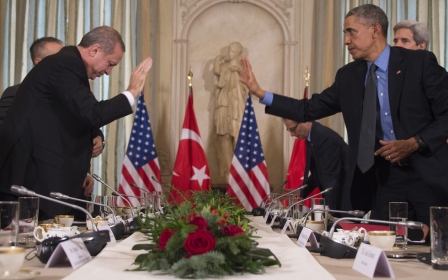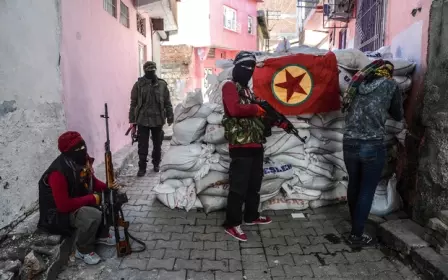The info wars surrounding Turkey’s besieged cities

Over the last six months, a bloody war of attrition has played out in Turkey’s predominantly Kurdish southeast. The renewed fighting between government forces and the Kurdistan Workers Party (PKK) has been largely concentrated in densely populated, urban spaces with at least 17 districts in seven cities placed under militarily enforced, government curfews.
The civilian impact of the war has been nothing short of devastating. Hundreds of thousands of people have been forced to flee their homes while hundreds of civilians are reported to have lost their lives as a direct result of the fighting. Images of the civilian dead being kept in domestic freezers due to the difficulty of arranging burial; reports from injured civilians, unable to access medical treatment, being trapped in basements for days on end; and accounts of children being tragically killed in lethal crossfire all paint a heartbreaking picture of the abject conditions being endured by the very people that both sides claim to be fighting for.
Rather predictably, the opposing forces in this conflict and their supporters blame each other for the devastating impact that the clashes have had on the lives of the civilian locals. For the parties involved, just as important as the success of their military campaigns has been the management of public and international perceptions about the nature of the conflict. Over the past few months it has become overwhelmingly clear that this is not just a fight over territory but a PR war in which the very loyalties of the Turkish and Kurdish public are fundamentally at stake.
The government has been very wary of allowing journalists and civil society organisations access to the besieged cities over the past few months, ostensibly citing concerns over the difficulty of establishing individuals’ safety amid a fiercely contested campaign of urban warfare. And while the death of lawyer Tahir Elci amid clashes on the streets of Sur stands as a stark reminder of the dangers lying in wait in many of these places, the criticism levelled at the government is that this policy of media exclusion is, to a far greater extent, the product of a cynical strategy to control the flow of information out of Turkey’s besieged cities.
An oft-repeated accusation goes that the government is engaged in a perception-management operation to mitigate the harsh realities of a war that currently enjoys the support of much of the Turkish public.
The Turkish state is certainly no stranger to the dark arts of media control. Media blackouts, website bans, asset seizures, and criminal charges for dissident journalists are not unusual practices for a government that has frequently sought to restrain Turkey’s restive Fourth Estate.
Yet this time around, the Turkish government has encountered little to no resistance from the mainstream media in having it report what it wants to be reported about what is happening in the country’s southeast. It is unclear whether the party’s stunning consolidation of power at the November polls is behind the taming of the mainstream media or if an inherent antipathy towards the PKK has been enough to unite the Turkish mainstream behind the country’s armed forces.
For many on the government’s side in this conflict, there is a perception that the pro-Kurdish and dissident media does not afford the PKK the same scrutiny as it does the Turkish security forces. This sentiment is, without a doubt, shared in reverse, with many in the pro-Kurdish media accusing the Turkish mainstream of turning a blind eye to the misdeeds of state forces.
The waters are muddied by the fact that independent journalists and civil society organisations face considerable difficulties in effectively observing the ongoing conflict. The consequence of this is that the main sources on the ground are either carefully selected pro-government voices or journalists and political actors with close ties to the Kurdish political movement.
As a result, there is all too frequently a battle of narratives and numbers that is played out in the media following military operations, with figures relating to the number of dead, as well as the categorisation of those who have lost their lives (whether they are PKK affiliates or civilian bystanders), varying radically depending on the ideological loyalties of the sources of information in question. Caught between these conflicting stories, the general public in Turkey is presented with two realities of what is happening in the southeast of the country.
The wildly conflicting nature of such media reports was typified by the 8 February coverage of a single military operation that occurred in the town of Cizre. According to the state broadcaster, TRT, 60 terrorists had been killed in the attack, while the pro-Kurdish People’s Democracy Party (HDP) claimed that 30 civilians had been burned alive in a massacre perpetrated by government forces.
Meanwhile, the local governor’s office instead stated that 10 terrorists had been killed over the course of the operation, with no reference to any civilian loss of life. The first two of these reports have since been withdrawn by their respective authors – an indication of the ease with which major media and political actors can commit to information of uncertain veracity.
An increasingly popular term has emerged in the Turkish lexicon for the proliferation of unreliable reporting – "‘information pollution" is how this phenomenon is increasingly being described by a frustrated public. By this token, it seems fair to say that there is a veritable smog of misinformation hanging over Turkey’s war-torn southeast, making it ever more difficult for the public to determine what is really going on.
Many in the pro-Kurdish and dissident press complain of harsh restrictions on their ability to perform their jobs: a situation that they say has enabled the pro-government side to dominate public opinion.
The government response is that Turkey’s media satisfies international standards and that no journalists in Turkey are imprisoned for the legitimate conduct of their profession. According to the Committee to Protect Journalists, 14 members of the press were behind bars in Turkey at the end of 2015. Human rights watchdog Freedom House currently rates Turkey’s press as "not free".
Yet perhaps the biggest issue in the PR war currently being waged in Turkey centres on who ultimately bears the most responsibility for the calamitous impact that the conflict has had on civilian life. The government refuses to acknowledge any direct responsibility for civilian deaths as a result of its role in the war, putting the blame for all civilian casualties squarely on the PKK.
Pro-Kurdish sources, on the other hand, accuse government forces of a campaign of collective punishment. Some even accuse the government of deliberately killing civilians in a fight that they say is directed as much against the communities that harbour the PKK as the PKK rebels themselves.
Ultimately, the blame game over the civilian casualties in this conflict can only really be resolved if independent human rights observers and a greater number of journalists are allowed to safely observe what is happening in the besieged cities. Yet the intensity of the urban warfare in southeast Turkey and possible considerations over the impact of such a move on public opinion means that this is an unlikely scenario for the foreseeable future. The info wars surrounding Turkey’s besieged cities certainly look set to continue.
- Alev Yaman is a writer and human rights activist based in London and Istanbul. She has worked as a researcher and consultant for a number of organisations specialising in freedom of expression, including Article 19, English PEN and PEN International. Her articles have appeared in the Dissident Blog, Al Jazeera, the Fair Observer and Bianet.
The views expressed in this article belong to the author and do not necessarily reflect the editorial policy of Middle East Eye.
Photo: A picture shows a stage with a giant screen displaying the image of jailed leader of the Kurdistan Workers Party (PKK) Abdullah Ocalan, a Turkish flag, and the logo of the Peoples’ Democratic Party (HDP, during the second general assembly of the party at Ahmet Taner Kislali Sports Hall in Ankara on 24 January, 2016 (AFP).
New MEE newsletter: Jerusalem Dispatch
Sign up to get the latest insights and analysis on Israel-Palestine, alongside Turkey Unpacked and other MEE newsletters
Middle East Eye delivers independent and unrivalled coverage and analysis of the Middle East, North Africa and beyond. To learn more about republishing this content and the associated fees, please fill out this form. More about MEE can be found here.





